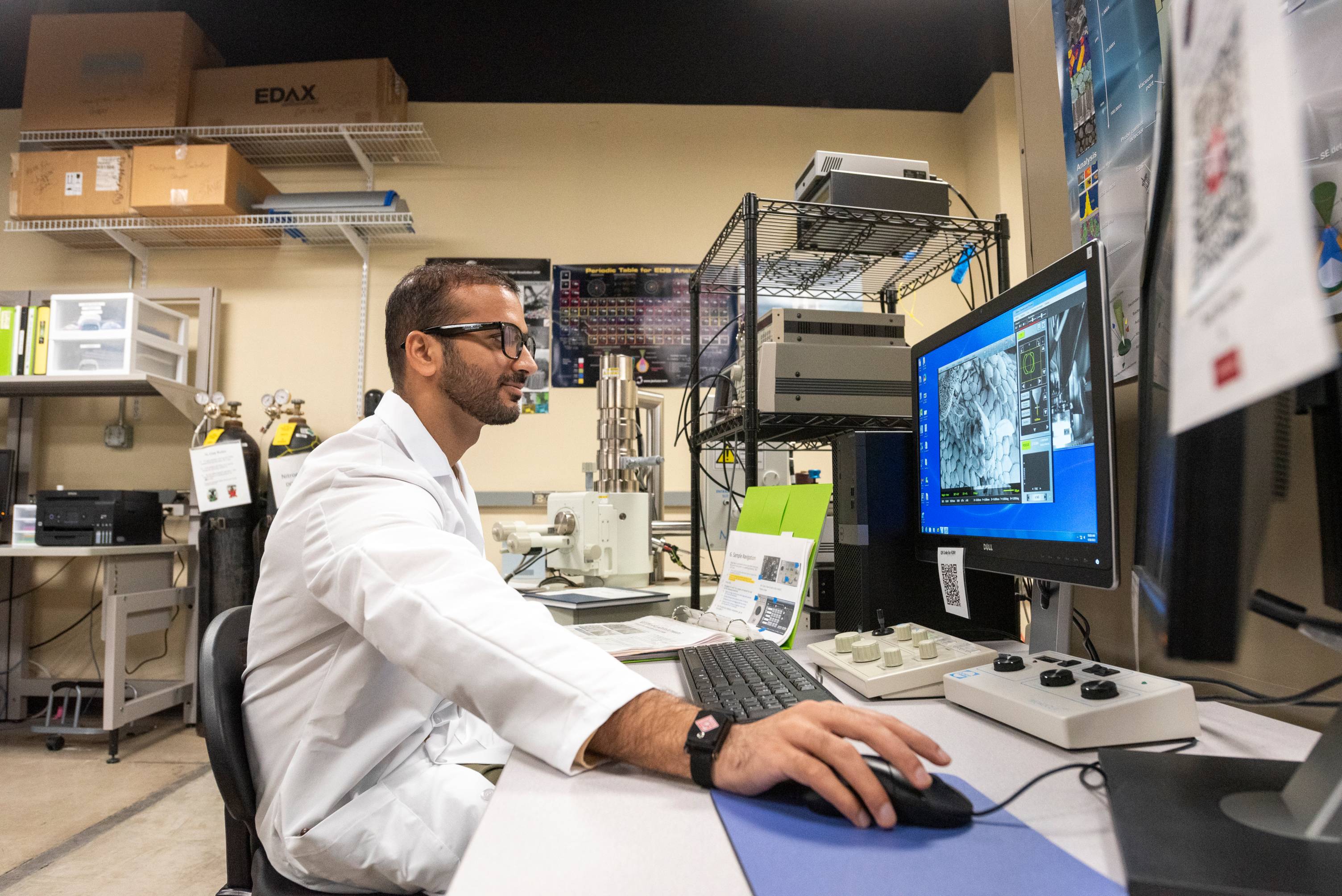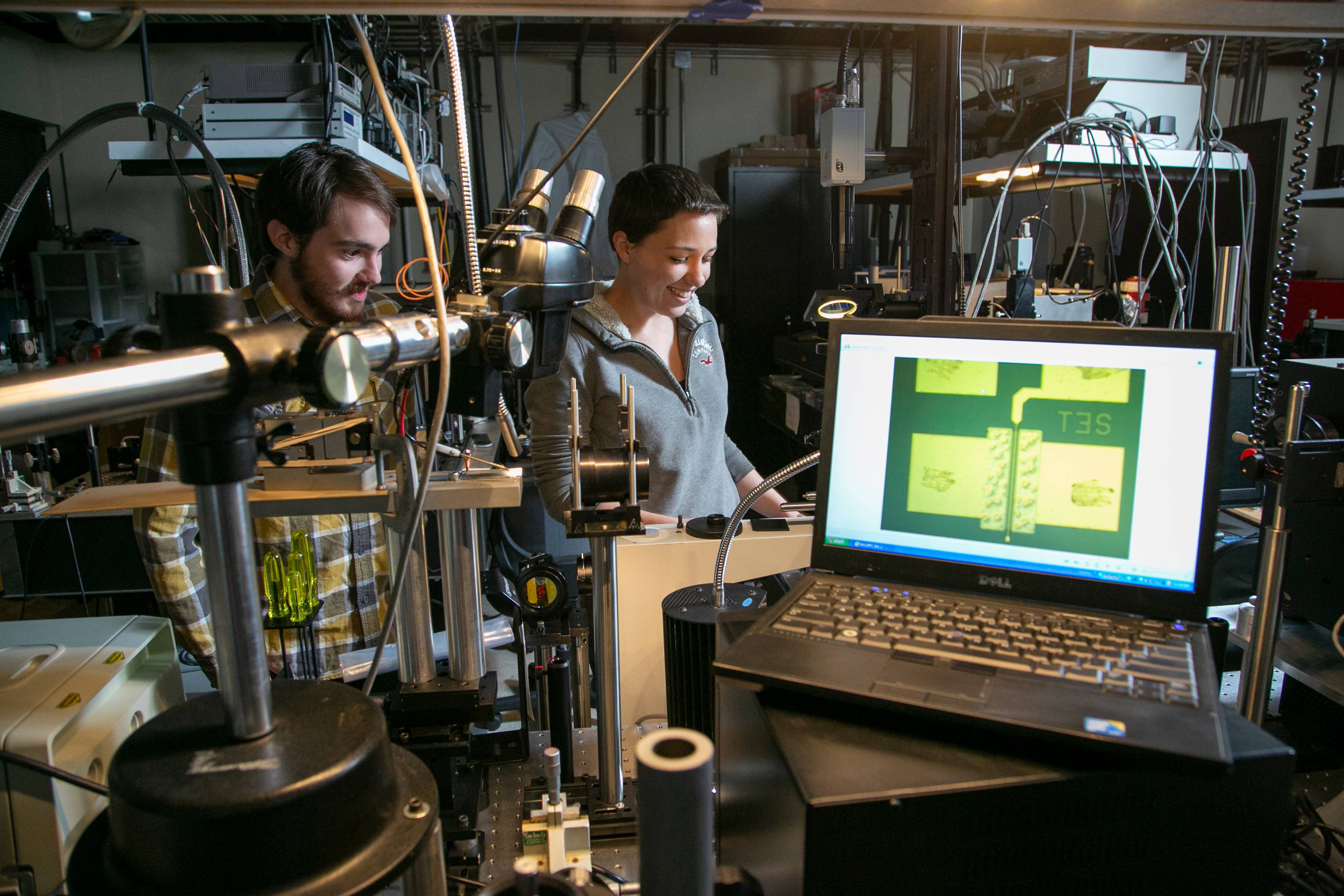Texas State's MSEC program has a truly unique scope of research led by international faculty experts who design materials to solve critical problems in diverse areas such as: electronics, and photonics; energy generation, transmission, and storage; medical devices and therapeutics; sustainability; transportation and infrastructure; food safety; catalysis; and artificial intelligence. From applied research to fundamental studies of natural and designed materials, the MSEC program has unrivaled capability for material modeling and characterization. Research areas range from thermoelectric and photovoltaic materials, next-generation microelectronic materials, epitaxial oxides, power electronics and novel semiconducting, ferroelectric and ferromagnetic materials to polymeric and supramolecular systems, nanocomposites, DNA-enabled devices, reconfigurable soft materials, and novel catalysts.
Our Research
Next Level Research


Our Facilities
Texas State has one of the largest and best-equipped shared labs for solid-state, polymer, and nanocomposite synthesis and characterization in the United States, and MSEC students have direct access to these facilities. The Analysis Research Service Center hosts a wide range of characterization instrumentation and equipment. The Nanofabrication Research Service Center includes a fully equipped 2000 sq ft clean room facility. The Epitaxy Research Service Center includes a unique set of equipment use to create thin films from a wide range of precursors, spanning a large portion of the periodic table. In addition, the component departments of the MSEC program each have a wide area of specialized equipment and instrumentation accessible to MSEC students.